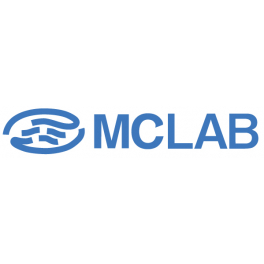 View full size
View full size
- Nucleic Acid Analysis
- Protein Analysis
- Biochemical Reagents
-
Enzymes
- Thermophilic DNA Polymerases
- Mesophilic DNA Polymerases
- Restriction Endonucleases
- Reverse Transcriptase and RNA Polymerases
- DNA/RNA Ligases
- RNases
- Proteases
- Nucleases
- Kinases
- Phosphatases and Sulfurylases
- DNA Repair Proteins
- Single-Stranded DNA Binding Proteins
- Chaperon Proteins and Disulfide Bond Isomerase
- Others
- Gene editing
- Molecular cloning
- Clinical diagnostics
- Human Identification STR kits
- Laboratory instruments
- Software
- A&A Biotechnology
- AdvancedSeq
- BioDynami
- Plant Cell Technology
News
-
RANK 2026
Visit us at the jubilee 20th edition of the RANK 2026 professional conference, which will take place on March 18–19 in Pardubice at the ABC Club. The conference is organized by the Czech Society of Cl...
Read more -
XXXV. Izakovičov memoriál 2025
We are pleased to announce our participation in the prestigious XXXV. Izakovič Memorial 2025, which will take place on October 8–10, 2025 at the Grandhotel Praha, Tatranská Lomnica. The Izakovič Memo...
Read more -
1st Czechoslovak Congress of Medical Genetics 2025
In the spring, we will participate in the 1st Czechoslovak Congress of Medical Genetics, which will take place from April 2–4, 2025, at the Cultural and Congress Center Elektra in the spa town of Luha...
Read more
 View full size
View full size
Description
Coronaviruses are enveloped viruses with a positive-sense RNA genome and with a nucleocapsid of helical symmetry. Coronavirus nucleocapsid protein (N-protein) is a structural protein that binds to the coronavirus RNA genome, thus creating a shell (or capsid) around the enclosed nucleic acid. The N-protein also interacts with the viral membrane protein during viral assembly, assists in RNA synthesis and folding, plays a role in virus budding, and affects host cell responses, including cell cycle and translation. The N-protein is required for coronavirus RNA synthesis, and has RNA chaperone activity that may be involved in template switch. The N-protein is a most abundant protein of coronavirus. Nucleocapsid protein is a highly immunogenic phosphoprotein also implicated in viral genome replication and in modulating cell signaling pathways. Because of the conservation of N protein sequence and its strong immunogenicity, the N protein of coronavirus is chosen as a diagnostic tool. The array of diverse functional activities accommodated in the N protein goes far beyond to be a static structural protein and makes it an interesting target in the development of antiviral therapeutics.
Source
E. coli
Organism
COVID-19
Accession #
QHO62115.1
Molecule Weight
The recombinant COVID-19 Nucleocapsid Protein consists of 420 amino acids (Met 1-Ala 419) and predicts a molecular mass of 47 kDa.
Endotoxin
< 1.0 EU per μg protein as determined by the LAL method
Purity
> 95 % as determined by SDS-PAGE
Storage
-80 °C, avoid repeated freeze-thaw cycles.
Cart
Payment gate



